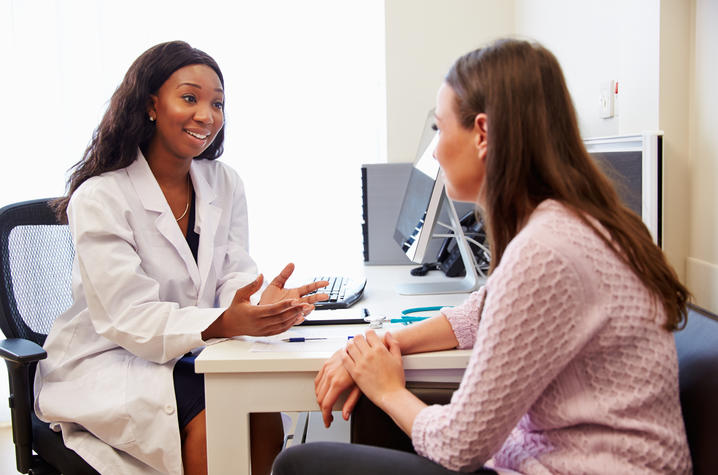Need Relief from Uterine Fibroids? You May Have Options

The University of Kentucky Public Relations and Strategic Communications Office provides a weekly health column available for use and reprint by news media. This week's column is by Dr. Merve Ozen, assistant professor of radiology and surgery in the UK College of Medicine and specialist in the Uterine Fibroid Program at UK HealthCare.
LEXINGTON, Ky. (July 19, 2021) — More than half of women eventually develop fibroids, which are noncancerous tumors that develop in the uterus. Most of the time, they don’t have any symptoms and cause no problems, but when they do, women may experience:
- Heavy menstruation requiring more than 10 pads or tampons each day
- Periods lasting longer than a week
- Pain or pressure in the pelvic area
- Frequent or difficult urination
- Pain during sexual intercourse
- Constipation, bloating or abdominal swelling
While the exact cause of fibroids is unknown, genetics or changes in hormones can contribute to the growth of fibroids.
Many women diagnosed with uterine fibroids are told a hysterectomy is their only option for relief, but often fibroids can be treated with more conservative or noninvasive options. Depending on a patient’s age or medical history, your doctor may prescribe birth control pills or an intrauterine device (IUD). Both can decrease bleeding and pain caused by fibroids.
Advanced procedures such as uterine fibroid embolization (UFE) can be considered if those measures are not effective. In this nonsurgical procedure, interventional radiologists insert a tiny tube into the uterine artery to cut off the fibroid’s blood supply, causing it to shrink. This procedure is done under twilight sedation and takes less than two hours. The procedure will not leave any scars. It’s an option for women who do not want surgery or may not be good candidates for it and who want to keep their uterus. One out of 10 patients may need a hysterectomy after UFE within five years.
If you suspect you have uterine fibroids, talk to your gynecologist about treatment options.
As the state’s flagship, land-grant institution, the University of Kentucky exists to advance the Commonwealth. We do that by preparing the next generation of leaders — placing students at the heart of everything we do — and transforming the lives of Kentuckians through education, research and creative work, service and health care. We pride ourselves on being a catalyst for breakthroughs and a force for healing, a place where ingenuity unfolds. It's all made possible by our people — visionaries, disruptors and pioneers — who make up 200 academic programs, a $476.5 million research and development enterprise and a world-class medical center, all on one campus.




